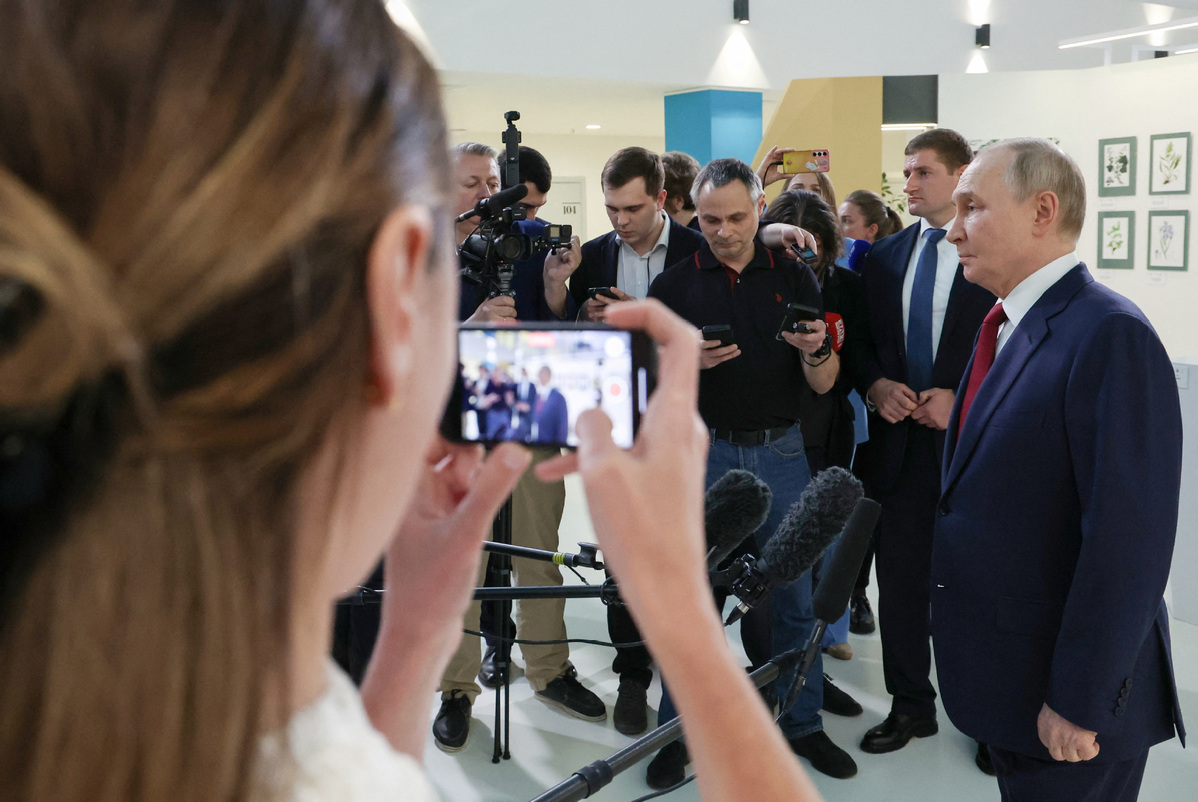Mediation proves to be long-haul endeavor


Although US President Donald Trump said on Monday that Russia and Ukraine will "immediately" begin ceasefire negotiations, after he had separate telephone calls with the leaders of the two countries, the high-stakes talks between him and Russian President Vladimir Putin on the phone did not appear to yield a major breakthrough.
After the call, Putin indicated little had fundamentally changed about his demands, saying "In general, Russia's position is clear. The main thing for us is to eliminate the root causes of this crisis".
But the intensive US-led mediation efforts since Trump took office in January have not actually made any breakthrough in that regard.
The core issue of the resolution of the Ukraine crisis is whether the US can persuade Kyiv to make concessions on Ukraine's territory. But Kyiv has clearly rejected that with the strong support of major European countries.
That the Russian leader said Russia was ready to continue discussing an end to the fighting, and compromises should be found that would suit all parties is something Moscow has repeatedly said since the outbreak of the conflict more than three years ago, and should not be seen as a breakthrough.
That the Russian leader said Moscow will "propose and is ready to work with" Kyiv on a "memorandum" outlining the framework for "a possible future peace treaty" can be seen as the only concrete result of the talks.
Trump told reporters after the talks that he believes Putin is serious about wanting peace.
But considering Putin recently rejected an offer by Ukrainian President Volodymyr Zelensky to meet in-person in Turkiye as an alternative to a 30-day ceasefire urged by Ukraine and its Western allies, including Washington, it appears that the Trump administration has underestimated the difficulty of brokering a negotiated end to the conflict.
Trump appears to have also overestimated the influence of his personal rapport with Putin. Even the White House admitted that the US leader has grown "frustrated" with both leaders over the continuing Ukraine crisis.
Trump told reporters after his call with Putin the process has "got very big egos involved ... But I think something's going to happen and, if it doesn't I'll just back away and they have to keep going". "This was a European situation. It should have remained a European situation," he said.
That's a clear indication that the US having got the resources deal it wanted has become halfhearted about putting in the time and effort needed to broker a resolution to the Ukraine crisis. That explains why having previously seemed ready to exclude Europe from the negotiation table, it is now preparing an it-is-your-business shift to Europe.
That also explains the spat between the pro-Europe France and pro-US Italy with Germany as the mediator to hold the line of the European Union. The bloc also held a meeting with the United Kingdom to reaffirm the solidarity of Europe. These are all signs showing European leaders realize the US might kick the ball into their court some time soon.
The Ukraine crisis, given its complicated historical and geopolitical causes, has always been a hot potato. China advocates for and remains committed to the vision of common, comprehensive, cooperative and sustainable security at the global level, and believes it is important to take seriously the legitimate security concerns of all countries and eliminate the root causes of the Ukraine crisis.
It might take a long time to resolve the crisis. But China welcomes all efforts conducive to reaching a fair, lasting and binding peace agreement on the Ukraine crisis that is acceptable to all relevant parties.
As a major power having special influence on relevant parties and unique capacity to end the crisis, the US should continue its efforts to create the necessary conditions for direct talks between Moscow and Kyiv, as that is the only way to secure a ceasefire, a negotiated end of the conflict and lasting peace in Europe.


































